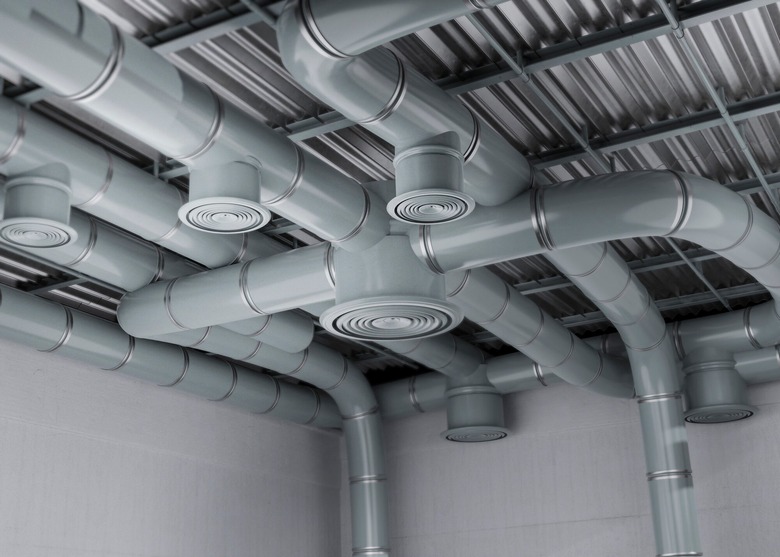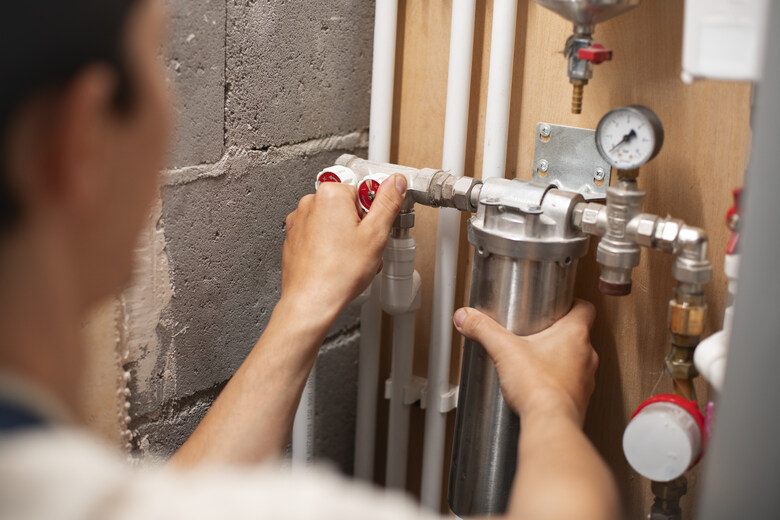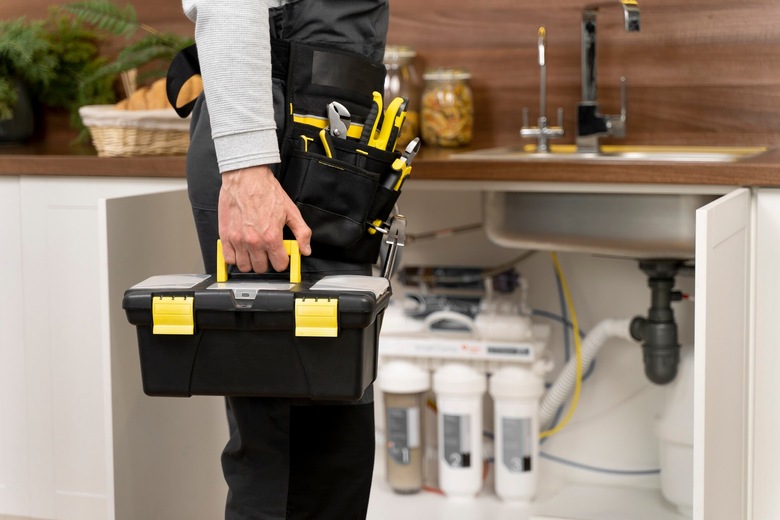Weather is more than just small talk; it’s a silent force that can wreak havoc on your home’s plumbing. Mother Nature’s mood swings can lead to a plumbing nightmare, from freezing temperatures to torrential downpours in Watertown, CT. But fear not because knowledge is power, and a trusted plumbing company can illuminate the often overlooked connection between weather and plumbing. Understanding how weather affects your pipes and fixtures lets you stay one step ahead of potential disasters and keep your home dry and comfortable.
How Weather Impacts Plumbing System
Understanding the impact of weather on plumbing is like decoding nature’s blueprint for your home’s waterworks. Each weather condition presents unique challenges to your plumbing system, from freezing temperatures to scorching heatwaves. Understanding the intricate relationship between weather patterns and plumbing vulnerabilities and gaining valuable insights to safeguard your home is crucial.
1. Freezing Temperatures
According to the Insurance Institute for Business & Home Safety, the risk of frozen pipes skyrockets when temperatures plummet below freezing, with potential damages averaging around $5,000 per burst pipe. Preventive measures are recommended to mitigate this risk, such as insulating exposed pipes, keeping cabinets open to allow warm air circulation, and letting faucets drip during cold snaps. Regular maintenance checks by a plumbing company can help identify vulnerable areas and ensure your pipes are well-prepared for winter’s chill.
2. Heavy Rainfall and Flooding
Heavy rainfall can overwhelm sewer systems and cause basement flooding, resulting in up to $25,000 in damages with just one inch of water, as reported by FEMA. Clearing gutters of debris, installing a sump pump, and inspecting foundations for cracks are crucial steps to prevent water infiltration and protect your home. In areas prone to flooding, consulting with a plumbing company for professional advice and assistance can provide added peace of mind during stormy seasons.
3. Hot and Dry Weather
During hot and dry weather, shifting soil can damage underground pipes, while increased water usage strains plumbing systems, as the Environmental Protection Agency (EPA) notes. Installing low-flow fixtures and promptly repairing leaks can help conserve water and reduce stress on your plumbing. Enlisting the expertise of a plumbing company for water-saving solutions tailored to local climate conditions can help homeowners navigate dry spells without compromising their plumbing’s integrity.
4. Humid Conditions
High humidity levels foster mold growth and corrosion in plumbing fixtures, posing health hazards and potential repair costs. Additionally, the EPA recommends maintaining indoor humidity levels below 60% relative humidity, ideally between 30 and 50 percent, for optimal indoor air quality. Residents can partner with a trusted plumbing company for humidity control strategies and proactive maintenance to ensure a healthy and resilient plumbing system.
5. Storms and Wind
Severe storms and strong winds can jeopardize outdoor plumbing fixtures like gutters and downspouts, potentially dislodging or damaging them. The risk is widespread, with the United States witnessing an average of 10,000 severe thunderstorms annually, per the National Oceanic and Atmospheric Administration (NOAA). To safeguard against such risks, homeowners should take proactive measures, including securing loose outdoor fixtures, trimming tree branches near their homes, and contemplating the installation of storm-proof covers for vulnerable areas with the assistance of a reputable plumbing company.
6. Hail and Ice
Hailstorms can significantly damage roofing materials and outdoor plumbing fixtures, including sprinkler systems and faucets. Every year, hail or wind damage insurance claims affect one in 35 insured homes, establishing them as the primary reasons for claims. To prepare for winter, homeowners should disconnect and drain outdoor hoses and consider installing frost-proof outdoor faucets to reduce the risk of damage from freezing temperatures.

Other Environmental Factors Affecting Plumbing
Understanding the environmental factors that impact plumbing systems is crucial for homeowners and property managers seeking to maintain their properties efficiently. Beyond weather-related challenges, various environmental factors can affect the stability and functionality of plumbing systems. Exploring these factors provides insight into the diverse issues plumbing companies address to ensure the long-term health of residential and commercial plumbing infrastructure.
1. Groundwater Levels
Fluctuations in groundwater levels can pressure underground plumbing pipes, potentially causing shifts, leaks, or even pipe collapse. Monitoring groundwater levels and implementing appropriate drainage solutions can help mitigate the risks of changing water table levels.
2. Geographic Location
The geographical location of a property can influence its susceptibility to environmental factors such as seismic activity or soil erosion, which can impact plumbing infrastructure. Understanding the specific environmental challenges associated with a location enables plumbing companies to tailor solutions that address these unique concerns and ensure the resilience of plumbing systems over time.
3. Soil Composition
The type and composition of soil surrounding your property can significantly impact the stability and integrity of underground pipes. For example, soil with high clay content is prone to movement and can lead to shifting or damage to plumbing lines over time.
4. Tree Roots
Tree roots seeking moisture and nutrients can infiltrate underground plumbing pipes, causing blockages, leaks, and even structural damage. Understanding the proximity of trees to your plumbing lines and taking proactive measures to prevent root intrusion is essential for preserving the integrity of your plumbing system.
5. Pollution and Chemical Contaminants
Contaminants in water sources, such as pollutants and chemicals, can affect water quality and contribute to corrosion within plumbing pipes and fixtures. Regular water testing and appropriate filtration or treatment measures are necessary to safeguard the health of your plumbing system and ensure access to clean, safe water.
4 Expert Tips for Weatherproofing Your Plumbing
Ensuring the resilience of your plumbing system against fluctuating weather patterns is crucial to avoid potential damage and inconvenience. Each season, from freezing temperatures in winter to heavy rainfall in summer, presents unique challenges that can impact your plumbing. By implementing proactive measures to weatherproof your plumbing system, provided by a trusted plumbing company, you can safeguard it against the adverse effects of weather extremes and maintain its functionality year-round. Below are expert tips to help you weatherproof your plumbing and protect your home from weather-related plumbing issues.
1. Insulate Exposed Pipes
Properly insulating exposed pipes in areas like attics and crawl spaces is crucial to shield them from freezing temperatures in winter, which can lead to costly bursts and leaks. Providing this insulation creates a barrier against the cold, ensuring that your plumbing system remains functional and intact throughout the colder months. Additionally, insulating pipes helps conserve energy by reducing heat loss, leading to potential savings on utility bills.
2. Seal Drafts and Air Leaks
Identifying and sealing drafts and air leaks around doors, windows, and utility openings helps maintain comfortable indoor temperatures and reduces the strain on your plumbing system caused by cold air infiltration. By preventing drafts, you minimize the risk of pipes freezing and bursting, preserving the integrity of your plumbing infrastructure and avoiding potential water damage. Sealing drafts also enhances the overall energy efficiency of your home, contributing to a more comfortable living environment and lower heating costs.
3. Drain Outdoor Faucets
Before winter sets in, it’s essential to disconnect and drain outdoor hoses and faucets to prevent water from freezing inside them, which can cause damage and blockages. This simple preventive measure ensures that your outdoor fixtures remain in optimal condition and ready for use when warmer weather returns, saving you from potential repair costs and inconvenience. Regularly inspecting outdoor faucets for leaks or signs of damage is also advisable, as early detection allows for timely repairs and prevents water wastage.
4. Use Heat Tape
Applying heat tape to vulnerable pipes provides extra protection during cold spells, preventing them from freezing and maintaining water flow. Heat tape is particularly useful for pipes where insulation alone may not provide sufficient protection against freezing temperatures. Investing in heat tape safeguards your plumbing system, ensuring its reliability even in the harshest weather conditions.
Emergency Plumbing Tips for Every Season
Planning for plumbing emergencies year-round is essential for homeowners to minimize damage and ensure quick resolution. From burst pipes in winter to sewer backups in summer, having a plan in place can help you handle any situation effectively. Below are the essential emergency plumbing tips to help you stay prepared for every season.
Creating a Home Plumbing Emergency Kit: Essentials to Include
In a plumbing emergency, having a well-equipped emergency kit readily available can significantly aid in mitigating damage and resolving the issue promptly. Including essential tools and supplies in your emergency kit ensures you have the resources to effectively address common plumbing problems. From pipe wrenches to plungers and pipe repair tape, each item plays a vital role in managing emergencies and minimizing their impact on your home.
- Pipe Wrench: A pipe wrench is a versatile tool for tightening or loosening threaded pipes and fittings. It is essential for addressing leaks or replacing damaged plumbing components.
- Plunger: Plungers are invaluable for clearing clogged drains and toilets, providing a simple yet effective solution for common plumbing issues.
- Pipe Repair Tape: Pipe repair tape, such as self-fusing silicone tape, can temporarily seal leaks in pipes until a permanent fix can be applied, preventing water damage and reducing the risk of further leaks.
- Multi-Purpose Tool: A multi-purpose tool, like a Swiss Army knife, can come in handy for various tasks during a plumbing emergency, from cutting materials to tightening screws or bolts.
- Duct Tape: Duct tape is a versatile adhesive tape that can temporarily patch leaks or secure temporary fixes until professional assistance arrives.
- Flashlight: A flashlight is essential for illuminating dark areas, such as under sinks or crawl spaces. It allows you to inspect plumbing fixtures and identify issues more efficiently.
- Towels or Rags: Towels or rags are useful for containing water leaks, soaking up spills, and protecting surfaces from water damage during a plumbing emergency.
- Gloves: Protective gloves safeguard your hands from exposure to dirty water or chemicals while working on plumbing repairs, ensuring your safety and hygiene.
Establishing an Emergency Plan: Who to Call and What to Do
When faced with a plumbing emergency, having a clear action plan can minimize damage and facilitate a prompt resolution. Knowing the contact information for a trusted plumbing company ensures you can quickly reach out for professional assistance. Additionally, understanding the necessary steps, such as shutting off the main water supply and having a designated meeting place for family members, streamlines the emergency response process and helps maintain calm during a stressful situation.
How a Plumbing Company Safeguards Your Plumbing System
Ensuring the longevity and efficiency of your plumbing system requires proactive maintenance and expert care, tasks that a reputable plumbing company can easily handle. Here are some key ways a plumbing company safeguards your plumbing system:
1. Regular Inspections
A plumbing company thoroughly inspects your plumbing system, meticulously examining pipes, fixtures, and appliances to identify potential issues before they escalate. By catching problems early on, these inspections facilitate timely intervention, ultimately saving you from the inconvenience and expense of major repairs down the line.
2. Professional Repairs
Should any issues be detected during inspections or arise unexpectedly, a plumbing company offers prompt and professional repair services. Utilizing top-quality materials and advanced techniques, their skilled technicians address plumbing issues efficiently, restoring your system’s functionality and ensuring peace of mind for you and your household.
3. Preventative Maintenance
A plumbing company provides proactive care through customized scheduled maintenance plans to keep your plumbing system in peak condition. By performing routine checks, cleaning, and adjustments, they help minimize wear and tear, reducing the risk of sudden breakdowns and prolonging the lifespan of your plumbing infrastructure.
4. Efficient Upgrades and Installations
Whether you’re renovating your home or upgrading to more efficient fixtures, a plumbing company ensures seamless installations and upgrades. Their expertise ensures that new additions integrate smoothly with existing systems, maximizing performance and efficiency while minimizing disruption to your daily routine.
5. Water Quality Testing and Treatment
Concerned about the quality of your water supply? A plumbing company can conduct thorough water quality testing to identify contaminants or issues affecting your water. Professional treatment solutions tailored to your specific needs can enhance the quality and safety of your water, providing peace of mind for you and your family.
6. Sump Pump Maintenance and Installation
A plumbing company offers expert sump pump maintenance and installation services to protect your basement from flooding. Regular maintenance ensures your sump pump is in top working condition when needed, while professional installation guarantees optimal performance and reliability during heavy rainfall or storms.
7. Leak Detection and Repair
Even small leaks can lead to significant water damage if left unchecked. A plumbing company employs advanced leak detection techniques to quickly pinpoint hidden leaks in your plumbing system. Once identified, they perform precise repairs using quality materials, preventing water wastage and potential structural damage to your property.
8. Emergency Services
In the event of a plumbing emergency, such as a burst pipe or sewer backup, a plumbing company offers 24/7 emergency services to address the issue swiftly and minimize damage to your property. Their prompt response and expertise ensure that the situation is resolved efficiently, mitigating the risk of extensive water damage and restoring the safety and functionality of your plumbing system.

Frequently Asked Questions
Can weather changes affect water pressure in my plumbing system?
Yes, weather changes such as temperature fluctuations and drought conditions can impact water pressure in plumbing systems. Cold temperatures can cause water to freeze and expand in pipes, leading to reduced water pressure or even bursts, while drought conditions may result in lower water pressure due to decreased water availability in the municipal supply.
What precautions should I take to protect my plumbing system during a hurricane or tornado?
To safeguard your plumbing system during extreme weather events like hurricanes or tornadoes, securing outdoor fixtures and shutting off the main water supply if evacuation is necessary. Additionally, consider installing backflow prevention devices to prevent contaminated water from entering your plumbing system in the event of flooding or sewer backups caused by heavy rainfall.
Can prolonged exposure to sunlight damage outdoor plumbing fixtures?
Yes, prolonged exposure to sunlight can cause outdoor plumbing fixtures, such as pipes, hoses, and faucets, to degrade over time due to UV radiation. To protect outdoor fixtures from UV-related damage, consider using UV-resistant materials, shading fixtures with vegetation or covers, and periodically inspecting and replacing components as needed.
How can I protect my plumbing system from tree root intrusion?
To protect your plumbing system from tree root intrusion, avoid planting trees near sewer lines and install root barriers or barriers to discourage root growth toward pipes. Additionally, schedule regular inspections with a plumbing company to promptly detect and address root intrusions, minimizing the risk of damage to your plumbing system.
Can wildfires affect the water quality in my plumbing system?
Yes, wildfires can impact water quality by contaminating water sources with ash, debris, and pollutants, especially in areas near wildfire-affected zones. It’s essential to monitor water quality alerts issued by local authorities and consider installing water filtration systems or using bottled water for drinking and cooking during wildfire events.
Contact L&P Plumbing for Expert Plumbing Solutions
Are you experiencing plumbing issues due to changing weather conditions? Don’t wait until it’s too late—contact L&P Plumbing in Watertown, CT, for prompt and reliable plumbing services. From preventive maintenance to emergency repairs, our experienced team is here to help you keep your plumbing system in top condition year-round. Schedule your appointment today!

